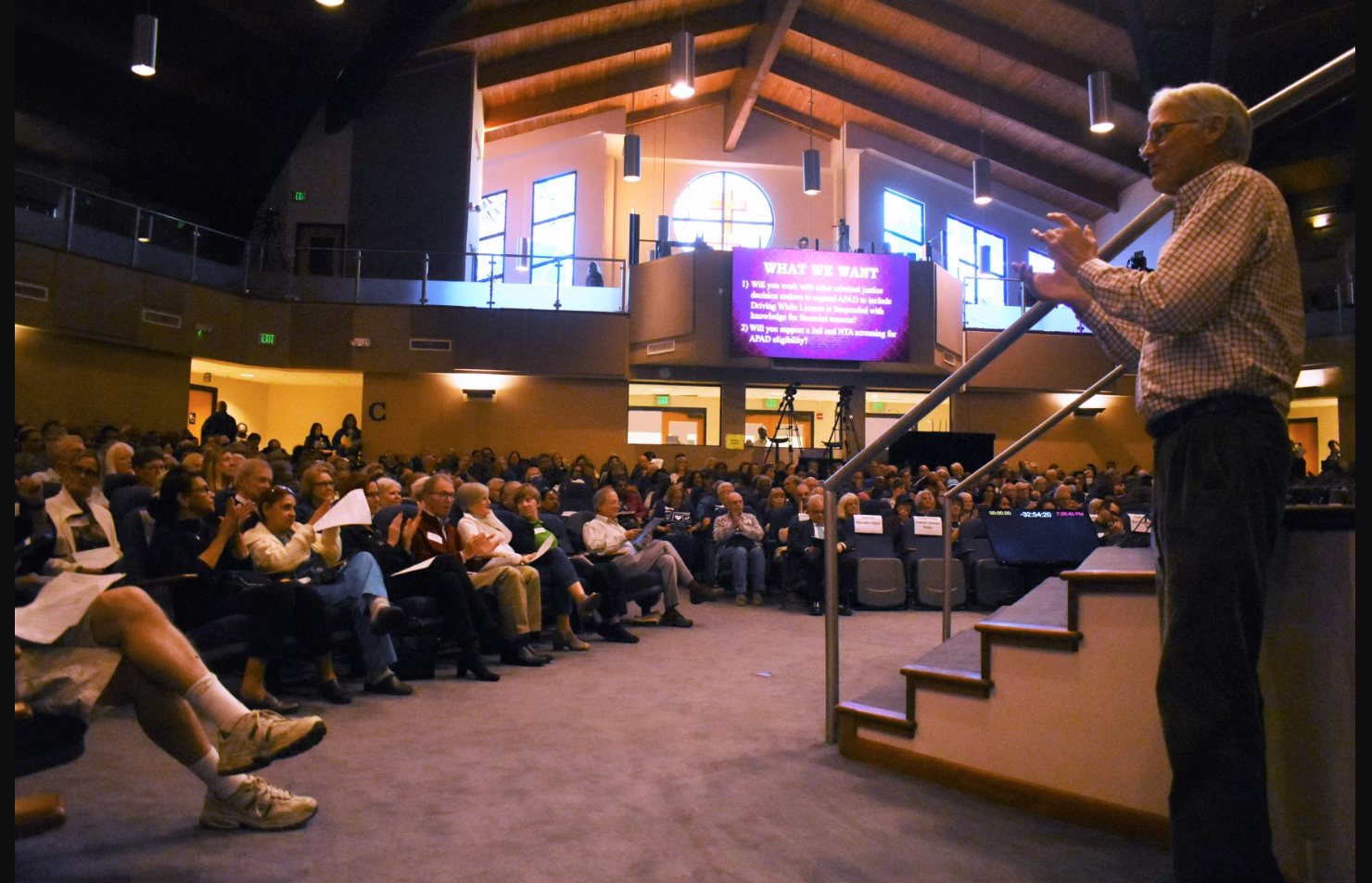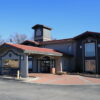By Gabriella Paul, NPR
Around 1,400 parishioners representing 24 churches and one mosque in the greater Tampa Bay region gathered on Monday evening to call attention to actionable issues in the community, including criminal justice reform, climate issues and housing solutions. Aliyah Moffett said she was arrested last year after crashing her car during a manic episode.
“I lost my grip on reality and crashed on Hillsborough Avenue,” Moffett said. “Nobody was hurt, yet people harassed me, accusing me of being on drugs.”
Moffett said she lives with post-traumatic stress and bipolar disorders, which can make it difficult to retain stable housing.
She’s been living in transitional housing while she waits for an open spot in permanent supportive housing, where case management, mental health and other social programs are provided on-site.
“I want a place to call home, but I’ve been on a waiting list for four months now,” Moffett said.
Moffett shared her testimony on Monday evening to around 1,400 residents gathered online and in-person at the Bible-Based Fellowship Church in Carrollwood for an action-based discussion with public officials on hot-button community issues.
The annual forum was hosted by the Hillsborough Organization for Progress and Equality(HOPE), which consists of 25 interfaith congregations working for social justice in the community.
The need for more permanent supportive housing in the community was among this year’s action items, along with criminal justice reforms and climate issues.
“This is where we actually speak to decision makers about issues that we’ve been working on throughout the year … ask their position and ask for [their] important leadership,” said Artie Fryer, co-chair of the HOPE mental health and addiction committee.
Rev. Anthony White, with Bible-Based Fellowship Church, was one of several ministers to welcome the crowd to the “Nehemiah Action” forum around 7 p.m.
“Like the prophet Nehemiah — last fall, we listened to each other and our neighbors and we heard the outcry of people as they shared their struggles to get housing and supportive mental health services … And like Nehemiah, in hearing the stories, we felt righteous anger,” White said, citing the biblical book Nehemiah.
Nearly 30% of homeless residents in Hillsborough County reported having a serious mental illness or substance use disorder, according to the 2019 Point-In-Time count conducted by the Tampa Hillsborough Housing Initiative.
Research also shows that a “housing first” approach — where safe and stable housing is provided before other assistance — benefits individuals and families facing chronic homelessness and those with long-standing mental illness or substance use disorders, according to the National Alliance to End Homelessness.
In Pinellas County, a cost-analysis of a pilot supportive housing program found that it significantly reduced average public costs, including jail stays, shelter expenses and emergency department services.
On Monday, churchgoers asked Hillsborough County Commissioner Harry Cohen to act on this research by working to make a total of 500 permanent supportive housing units available in the next five years.
In response, Cohen said: “Yes, here’s the complication. I’m only one of seven commissioners.”
However, he added that discussions between elected officials and community leaders are already underway.
A meeting is scheduled for April 17 between county administrator Cheryl Howell, county health services director Gene Earley and Tampa Hillsborough Homeless Initiative CEO Antoinette Hayes-Triplett to discuss increasing permanent supportive housing solutions in the community.
View the original story here.






